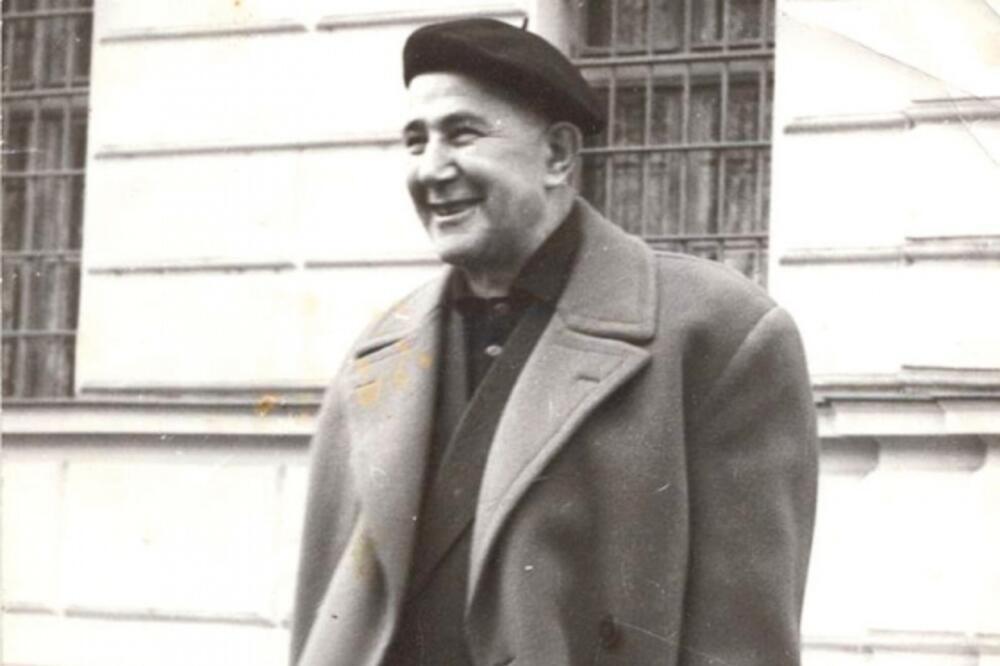All these internal satires will culminate in the first campaigns against the opponents of the unification, and the real feast of the darkest bestiality will take place during the punishment of the Rovačka tribe for the murder of five gendarmes. Murders, rapes, whipping of cats inserted under the tied skirts of unfortunate women, are some of the crimes that went beyond the desire to eliminate the opponent, turning into difficult-to-understand rituals of monstrosity. In that campaign, the author's father will also blacken his face and get his place in the opulent gallery of human follies. Granted, he won't go wild like his subordinates, but he won't stop them either. His biggest sin will be the shelling of Rovci, when in a vengeful ecstasy he will call on his bull Štitonja, who was once kidnapped from his hungry family by the people of Rovci. It is one of the many details that shows the deep location of revenge in the core of the former Montenegrin code of ethics, which was obviously one of the key intrigues for Đilas when writing this novel. At one point, he will make a slightly distorted panegyric to the phenomenon of revenge and, although expressed in the author's voice, that comment sounds like the monologue of a medium in rapture, who has no responsibility to any rational or ethical authority but only to the demon in whose power he is, in this in the case of the demon of revenge:
"Revenge is a stunning and fierce fire. It burns everything, every other thought and feeling. She remains alone, over everything and in everything.
And of all others, blood revenge is the most intense sweetness.
There is no stronger and more permanent feeling than the desire for blood revenge. The word: blood - it is in the language that I learned from a young age, something different than today. Especially blood from your brotherhood and tribe.
This meant the life we live, but collected in generations of yarns, I live through traditions - their blood was transferred to all members of the brotherhood and to ourselves. Someone spilled that imperishable blood and - it must be sanctified, if we don't want the curse of all those whose blood it was to fall on us and to drown us in shame in front of other brotherhoods. That desire seems to have no boundaries in space, and no end in duration."
In this fragment, which truly sounds like an ecstatic expression of some guardian spirit of "imperishable blood", Đilas masterfully finds an adequate sound and an adequate form for the content, and it is one of those very poetically conscious "packaging" that we find in Besudna zemirka. These almost poetic digressions most convincingly amnesty this novel from the frequent qualifications that classified it as an insufficiently developed literary chronicle.
Besudna zemlja has the most distinct chronicling structure in its last part "Toughness and Science", but even that chapter Đilas does not build as a mere sequence of events and characters, which represent only the curiosities of a space and time, but with their relationship and sequence opens up space for an intriguing fictional superstructure , in which the reader has his legitimate share.
After the part "Blood and cannons", the themes of blood and revenge are suppressed from the first thematic plan. This happens gradually - with the expansion of the geographical space in the novel. It is as if the complication of life, which occurs in this expansion, suppresses those passions that the anxiety of living imposes on them in reduced and given frameworks, the small possibilities of which simplify the relationship between people, keeping them mainly in the zone of instinct. By leaving Podbišće for Kolašin, and later for Berane, the narrow circle of village childhood, in which life was reduced to war and existential torment, will diverge into the colorfulness of village life, the sorting out of which will be further conditioned by the period of peace that will come after the war and the traumatic integration of Montenegro into the Kingdom of Yugoslavia. The Beran period in the author's upbringing will prove to be a time in which a life full of town colors and smells, but also palanquin darkness and odors will appear before the curious high school student, which will infuse his epic and pastoral experience of the world with the intrigues of a sensuous, but also wicked reality. You will find everything in that relaxed town, whose tame position attracted various religions, peoples, customs and which varied in its duration. Through a gallery of vivid characters, Đilas will show us how seductive this exuberance can be, although often cruel - that it can make a man open up to another, but also terrify him and make him fence off his ground and turn only to his blood. In this chronicle, two characters stand out with an open spirit. And while Baba Martina's sensibility for various diversions outside the main stream of life of a patriarchal palanquin is the product of her innate sense of reason and long coexistence with the also reasonable townspeople of the Islamic faith, the emancipation of teacher Miraš springs from his skepticism that forces him to constantly peer behind every system of power, looking for his behind-the-scenes rot. In simpler words - in Baba Marta's world all gods are welcome, Miraš's world does not need gods.
The two of them carry two paradigms of freedom - the intuitive one, which grew out of God-given nobility, and the rational one, which is the product of constant suspicion of any authority. They are loners in an environment where it is understood that one must advocate and stubbornly defend some collectivist narrative. Although Miraš presented himself as a socialist, his belief was completely idealized, manifested by some abstract affection for the people and their freedom. He perceived a specific people as a raw mass steeped in ignorance. And just as Miraš essentially does not agree to any ideological choice, Grandma Marta also refuses to look at life from the given possibilities of patriarchy. She will also show an unusual understanding of the carnal side of life, and her more extreme turns will not seduce her. For grandma Marta, the act of kissing is an implicit fact of growing up as a girl - "the sacred right of youth, even more - of a human being". Although quietly and secretly, grandmother Marta will also talk about the not at all chaste relationship of the head of the county and his dilber without any judgmental remarks, which is the first and surprisingly early gay detail in Montenegrin literature. Admittedly, Đilas will classify this "deviance" as one of the oddities brought about by the "Turkish scumbag lordship", but the gay-friendly grandmother Marta will still remain one of the characters for whom the author shows special sympathy.
Bonus video:





